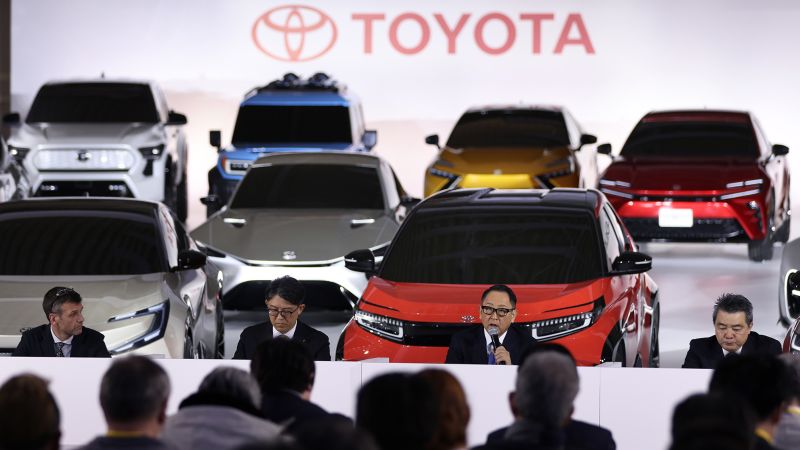Toyota Motor reported a more than doubling of second-quarter profit on Wednesday, helped by a weak yen and strong sales, and raised its full-year forecast by 50%.
The world’s top-selling automaker said operating profit for the three months to the end of September rose 155.6% from a year earlier to 1.44 trillion yen ($9.52 billion).
The Japanese automaker said it sold more cars in all global regions — including the United States, Asia and its home market — over the six months to end-September compared to the same period a year earlier.
Toyota lifted its full-year profit forecast to 4.5 trillion yen from 3 trillion yen, largely due to favorable effects from foreign exchange rates. It expects the weaker yen to account for 1.18 trillion yen of the revision to the full-year profit.
It said a further boost from cost reduction and marketing efforts and price revisions especially outside of Japan was likely to offset higher expected expenses.
The new projection compared to analysts’ average forecast of 4.0 trillion yen.
The quarterly results compared to an average 1.08 trillion yen profit estimate in a poll of 10 analysts by LSEG and a profit of 562.8 billion yen in the same period last year.
Toyota shares, which were up 4.4% just before the release of the earnings, jumped immediately after and were later up 5.6% at 2,735 yen.
Toyota unveiled in June a sweeping revamp of its battery-powered vehicle strategy and committed to technologies to improve the driving range and cut costs of electric vehicles.
It said overnight it would boost investment by $8 billion in a North Carolina plant that will make batteries for hybrids, plug-in hybrids and full-battery vehicles.
In the first nine months of the year, it sold 7.5 million cars, which included the Lexus luxury brand, nearly a third of them hybrids. It sold around 76,000 battery EVs, or about 1% of total sales, during the same period.
While Toyota has avoided the kind of hit other Japanese automakers such as Nissan Motor and Honda Motor have taken in China from a shift to EVs and the rise of domestic brands, Toyota still faces pressure in the world’s biggest auto market.
It also faces a battle in Southeast Asian markets such as Thailand due to rising Chinese investments, fueled by higher demand for EVs.
Read the full article here
